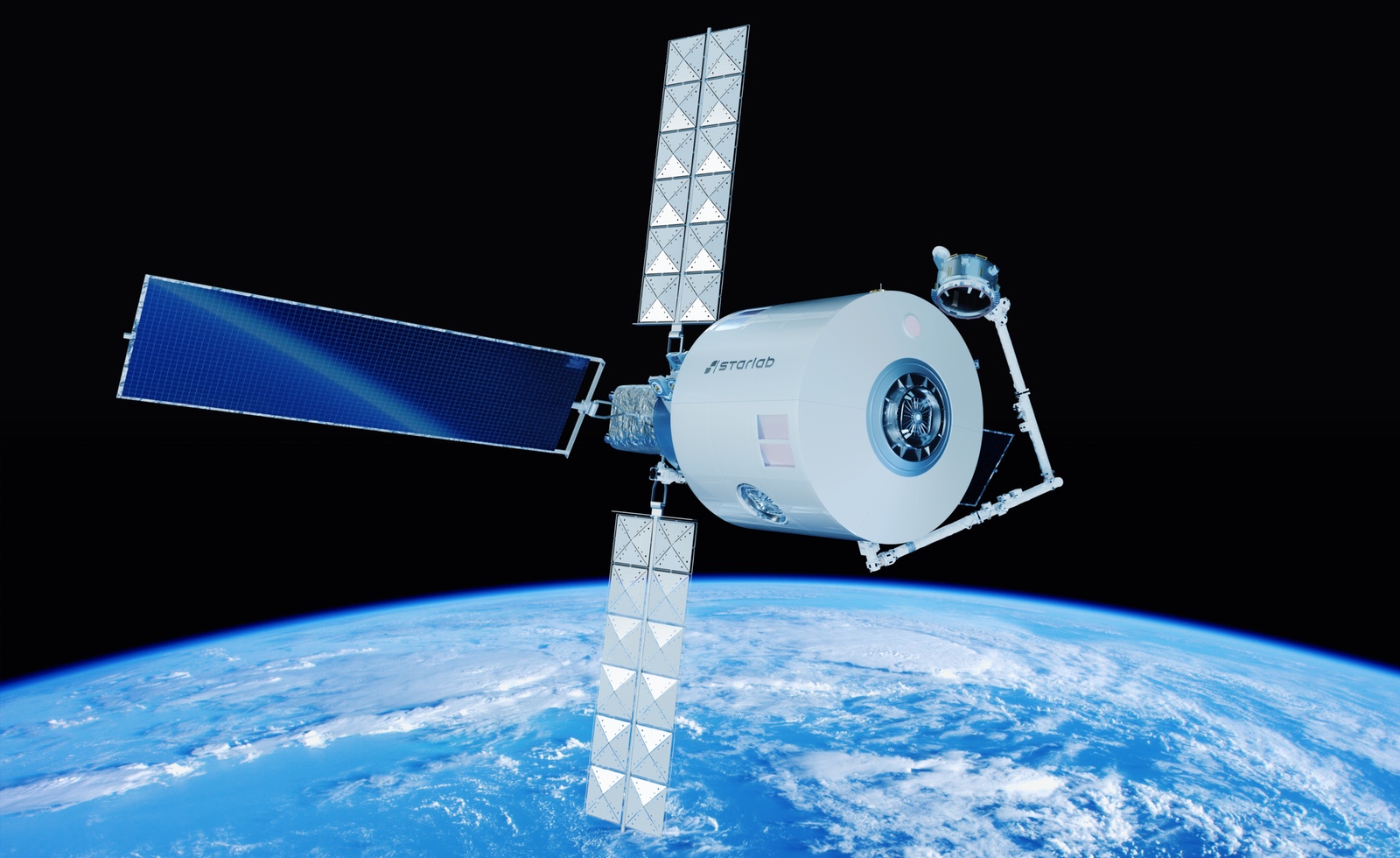
LOS ANGELES — Northrop Grumman will drop plans to develop its own commercial space station and instead assist a competing effort led by Voyager Space, the companies announced Oct. 4.
Under the new partnership, the companies will cooperate on the development of fully autonomous docking systems for Northrop’s Cygnus cargo spacecraft, allowing it to dock with Voyager’s Starlab space station. The companies also said they will “further explore opportunities to strengthen the development of Starlab” that could include Northrop providing engineering design services for that station. Ars Technica first reported about a potential partnership between the companies.
“This collaboration is a major step forward for the Starlab program,” said Dylan Taylor, chairman and chief executive of Voyager Space, in a statement. “Northrop Grumman’s technical capability and proven success in cargo resupply services will play a pivotal role as we accelerate Starlab’s development.”
The two companies had been independently working on space station concepts. Both were support by funded NASA Space Act Agreements as part of its Commercial Low Earth Orbit Destinations (CLD) program awarded in late 2021. Those agreements are intended to mature the designs of their stations as part of NASA efforts to assist the development of commercial successors to the International Space Station, set to retire in 2030. Voyager Space recently added Airbus Defence and Space to its team, creating a joint venture to enable development of Starlab.
The Voyager-Northrop statement did not discuss the future of Northrop’s proposed station. However, NASA said in a separate statement that Northrop will withdraw from its agreement. The company has received $36.6 million out of a total $125.6 million for achieving certain milestones in that agreement.
The agency spun the partnership as a positive development. “Northrop Grumman has determined that its best strategy is to join the Nanoracks team, and NASA respects and supports that decision,” said Phil McAlister, director of commercial space at NASA Headquarters. Nanoracks is part of Voyager Space. “We continue to see a strong competitive landscape for future commercial destinations, and I am pleased that Northrop is staying with the program.”
NASA stated it will take the $89 million that Northrop Grumman did not receive on its CLD agreement and other, unspecified funding to add milestones to the agreements it has with Voyager Space, Blue Origin and Axiom Space, “assuming NASA and the companies can agree on the additional milestones and value.”
Northrop did not indicate in the statement why it decided to no longer pursue its own station. Company officials previously discussed challenges with the business case for commercial stations. Rick Mastracchio, director of strategy and business development at Northrop Grumman Space Systems, said at the ISS Research and Development Conference in August that regulatory and liability challenges, as well as uncertainties about how international partners would be part of commercial stations, were issues that needed to be addressed.
He said at the same conference that Northrop, even while still developing its own station concept, was offering Cygnus to other commercial space station providers. Another company official said at the conference that among the upgrades to Cygnus being studied was one that would allow Cygnus to dock, rather than be berthed by a robotic arm as it is today at the ISS.
“We are fully committed to the future of commercial LEO,” Steve Krein, vice president of civil and commercial space at Northrop Grumman, said in the Voyager Space statement. “Our new role with Starlab supports NASA’s initiatives to encourage commercial space station development as part of a growing LEO economy.”
Related
ncG1vNJzZmiroJawprrEsKpnm5%2BifK%2B70a2fq6egYrSzwcymmKdlpKR6q7vIp2Svp6mWtKa%2BjKynmpuVYrCwucyeqZyhkaF6tLzAnJxmq6SWwaq7zWanq6eamrC1ew%3D%3D